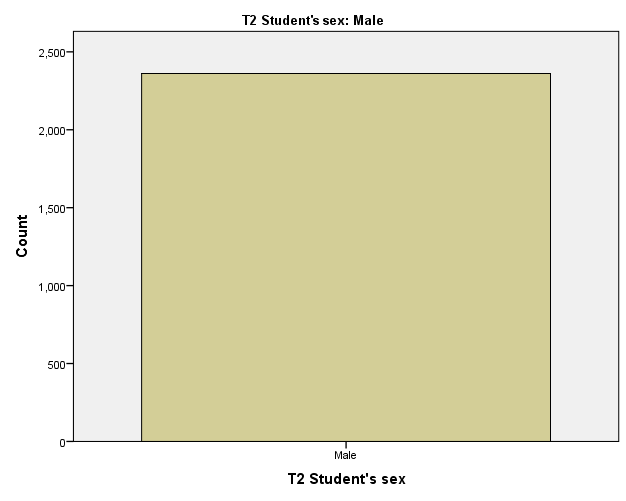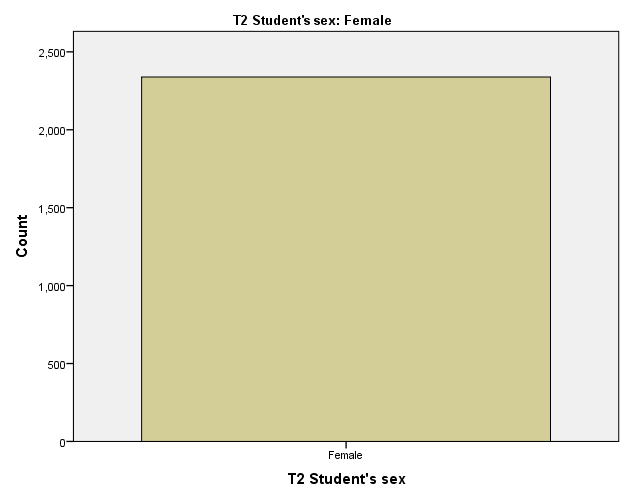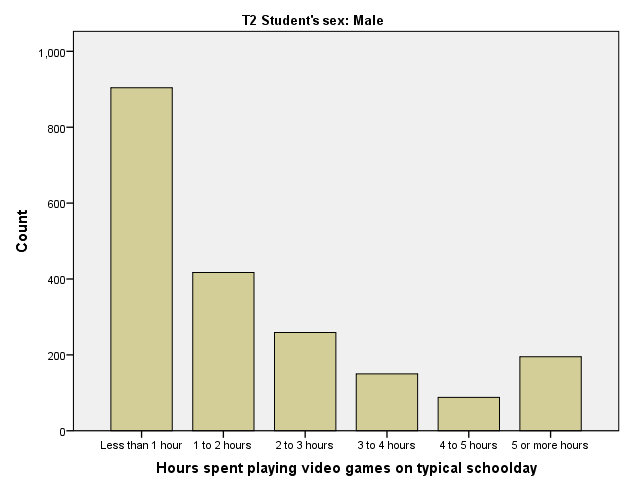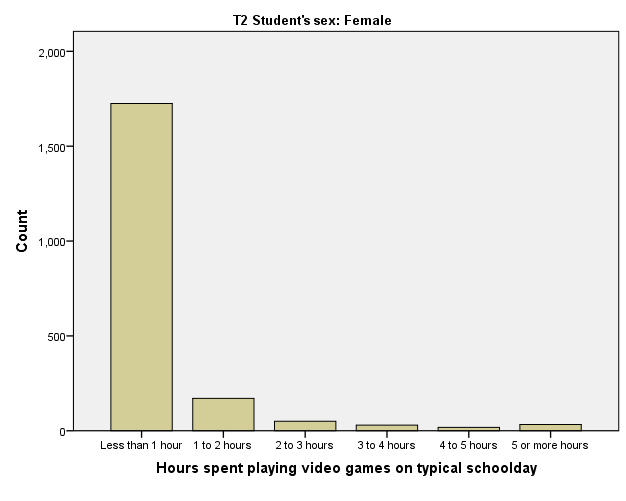The categorical variable selected is X2SEX which is the T2 Student’s sex. The continuous variable selected is S1HRVIDEO which is the hours spent playing video games on a typical school day.




Table 1.0: descriptive for variable X1SES
The overall mean for the T1 Socio-economic status composite is 0.0355. The overall mean for hours spent playing video games in a typical school day is 1.82. Male students’ average is 2.35, and female students’ average is 1.30. This shows that most male students spend their time playing video games in a typical school day compared to Female students.
Social change is the transformation of the culture and social institutions over time. These changes are brought about by human interaction and relationships (de la Sablonnière, 2017). The are various causes for social change, and in our case, technology is the leading cause of change. Students, both male, and female spend an average of 1.82 hours playing computer games in a typical school day. From various researches, gaming is associated with both negative and positive clinical correlations. Students with problematic gaming behavior exhibit poor self-control, time distortion, hyperactivity, and inattention (Ward, 2018). The students who spend most of their time gaming tend to have problems dealing with their negative emotions as they use games to avoid facing the problem. However, digital games are currently used as a learning tool (Papadakis, 2018). It is a tool that helps in optimizing learning and performance in students.
References
de la Sablonnière, R. (2017). Toward a psychology of social change: A typology of social change. Frontiers In Psychology, 8.
Papadakis, S. (2018). The use of computer games in a classroom environment. International Journal of Teaching and Case Studies, 9(1), 1.
Ward, M. (2018). “Cutting class to play video games.” Information Economics and Policy, 42, 11-19.